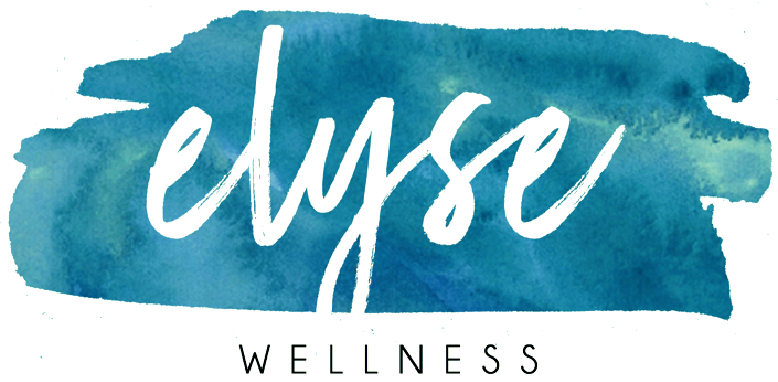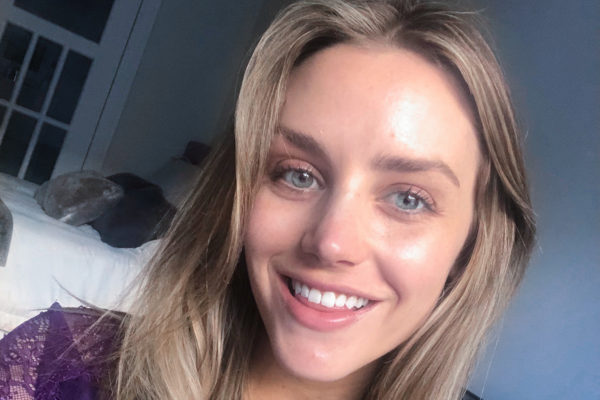 * Disclaimer: I am not a therapist or any type of mental health expert – this post is intended to share my experience only.
* Disclaimer: I am not a therapist or any type of mental health expert – this post is intended to share my experience only.
If you are in crisis, and need immediate support or intervention, call, or go the website of the National Suicide Prevention Lifeline (1-800-273-8255). Trained crisis workers are available to talk 24 hours a day, 7 days a week. Your confidential and toll-free call goes to the nearest crisis center in the Lifeline national network. These centers provide crisis counseling and mental health referrals.
A FULL YEAR OF THERAPY
It’s kind of crazy I’ve been going to therapy for a full year now – but what’s even more crazy to me is that I went 26 years without it.
I knew I probably “should” go to therapy for years, but avoided it for a litany of reasons – too expensive, too much of a time commitment, the stigma (thank god the stigma against therapy / mental health is finally fading away), and honestly probably a whole lot of fear – really taking a hard look at yourself can be scary.
Looking back now, it’s almost funny to me I had any of these hang ups. As someone who is trying to optimize every area of my life and my health through what I eat and how I move my body, why wouldn’t the same apply to my mind?
I truly believe having a firm grasp on your mind and your own emotional landscape is invaluable.

STARTING THERAPY
When I finally pulled the trigger on therapy, it was primarily because of issues brought up by a past relationship. Which at the time, I thought was kind of lame – like do I really not have anything better to worry about? BUT I quickly learned that couldn’t have been further from the truth. Relationships are where shit happens. They’re where ALLL our shit comes up – every past hurt, every insecurity, every fear – it will all play out in our relationships (this applies to non-romantic relationships too, but romantic relationships tend to be the most triggering).
So while, yes, I initially walked into my therapist’s office planning to discuss a relationship, it quickly became clear that the relationship was just the surface level trigger for a lot of deeper work. So if you’re worried you’re wasting your money spending too much time in a session talking about why a boy didn’t text you back, remember that those conversations can be hugely beneficial, as long as you’re open to digging into what’s really going on with you at a deeper level.
MY THERAPY EXPERIENCE
In my first 2-3 therapy sessions, I think I cried the ENTIRE time. Like UGLY cried. I didn’t realize how much unresolved shit I was holding onto, and verbalizing it face to face with a stranger just unleashed it all. (As some who was seeking therapy to work through some issues with vulnerability, just this process alone was like ripping off a huge band aid).
Over time, I started to cry less and less. Every session, the stored emotions and unresolved hurt were processed and released.
Now, I have entire sessions with no crying, nothing really coming up emotionally, more just processing things mentally, taking a look at things in my life with much clearer eyes. And then randomly something will come up that hits a sore spot in my heart, and it feels like whatever hurt me happened yesterday. It’s all part of the process, and every time it happens, it makes me happy to know I’m clearing out and healing more and more of those sore spots every time.
My sessions these days are less about healing from things in past / childhood, and more about optimizing my life. My sessions help keep me on track and in touch with the kind of person I want to be, and help me see when i’m falling into old patterns or reacting in less than ideal ways. It helps me see situations MUCH more clearly, and helps me make sure I’m reacting to the reality of a situation, not projecting something from my past.

10 THINGS I’VE LEARNED IN A YEAR OF THERAPY
1. Everyone has trauma
Some people’s trauma is obviously MUCH greater than others (and I don’t want to minimize that) but there’s not a human being alive who hasn’t been hurt or experienced traumatic experiences that affected them on a deep level. And pretending we don’t can leave us walking around with major blindspots.
2. It really all does go back to childhood
To the point above, the trauma we’ve experienced could go back to something as simple as a parent not knowing how to meet our needs or picking us up when we cried as infants. Things we don’t even remember or view as particularly significant affect our attachment styles (more on that here and here) which affect all our interactions (especially romantic).
3. We hurt & heal in relationships
This book goes into this in more detail, but the theory is essentially that on a subconscious level, we seek out people that feel like home – whether that’s good or bad. We’ll even seek out people or situations that allow us to recreate the same type of pain we experienced in childhood, with the hope that we can fix it. That is a grossly insufficient summary of a complex psychological phenomenon, and one that definitely blew my mind when I first dug into it with therapist.
4. We all just want to be seen and loved for exactly who we are
I have really come to believe that’s what it all comes down to. Everything we do, or someone does to us – we’re all just seeking love and approval. It’s in our DNA – in hunter/ gather days, not being accepted to the group could literally mean death. And as children, we are taught (directly or indirectly) that certain behaviors or attributes about ourselves are not okay. Hence the vicious cycle = if we show up as who we really are, we won’t loved. So we show up as curated versions of ourselves, but never feel fully seen.
5. People can change, but its really really hard
In learning more about human psychology and how much happens in childhood, it becomes clear that who we are – I’m talking who we really are at a deep personality level – is very very hard to change. Yes our preferences change and we can change behavior, but if something just doesn’t come naturally to a person, it just doesn’t. It’s not good or bad, it just means you should probably focus on finding people you click with as they are, rather than trying to change anyone.
6. You have to make yourself whole & happy on your own – no one else can
This is huge. You HAVE to be complete, whole & happy on your own before you can ever expect to be happy with someone else. We should never need someone to ‘complete’ us – the people in our lives should only be positive additions. On the flip side, if you’re not truly happy with yourself, no one else will be able to make you happy, no matter what they do.
7. We have a lot of stories in our heads
Whether it’s catastrophizing (a fun therapy word I learned that basically means playing out the WORST possible outcome in our heads) or stories about how our lives should be (thank you rom coms for distorting everyone’s view of relationships), our heads can hold a lot of stories. Stories that often have very little to do with the reality of a situation. Therapy has helped me to spend less time in my head, and look at the facts of a situation. I promise, people will show you who they are with their actions. It’s actually very clear most of the time if we can get out of the stories.
8. It’s probably not about you
Once you start to see how much of your own behavior can be influenced or triggered by things you’re not even consciously aware of, you start to realize that most people are caught up in their own bullshit too. So if someone is rude or does something hurtful to you, it probably has nothing to do with you, and everything to do with where they are with their own lives. And the more you can recognize that, the most peaceful existence you’ll have on this planet
9. Not every session will be a breakthrough, or even feel good
When I first started therapy, EVERY session was so emotional, it was clear I was getting my money’s worth. These days, sometimes I feel like I’m just chatting to a friend, but randomly I’ll stumble across something worth digging into that I didn’t know was there. On the flip side, when you’re really working through something, it can be really painful. Drudging up old pain and talking about it? Yeah it doesn’t always feel good. Especially at first. But the best way out is through, and if you’re working through deep trauma (something I don’t have experience with so can’t speak on), make sure you have a good support system in place.
10. Progress is not linear
I mentioned this above, but my sessions have bounced all over the place. Sometimes amazing, sometimes rough, sometimes pretty anti-climatic. Sometimes you’ll think you’re totally over something, and it just guts you out nowhere. But then you’ll have these AMAZING moments of “wow I’ve come SO far”. A few weeks ago, something happened that would have really messed with me in the past, and I this time around I almost FORGOT to even mention it to my therapist, because it barely affected me. Worth every penny.
FINDING A THERAPIST // COST
This was hands down the most asked question on my Instagram poll, which makes sense – finding the right therapist for YOU is huge. It’s an extremely important relationship, and can really make or break your therapy experience. And everyone will like something different in their therapist. For me, I’m not really a ‘tough love’ kind of person, so having a therapist that was just oozing compassion at first and assuring me that my feelings were valid was perfect for me. Now that we have a relationship and trust, she can call me on my bullshit (very important also) in a way that I can actually hear and take in.
I found my therapist on Reflect – a really cool (but Bay Area only – sorry guys) company that matches you with different therapists based on your needs/ preferences. I ended up not choosing a Reflect therapist, but a Reflect therapist referred me to mine. Yelp or referrals from friends / doctors are also good approaches to finding a therapist. Reflect is a REALLY good deal at $95/session (many therapists can range from $150-$200 in big cities). I pay out of pocket (it hurts every month, but it has been BEYOND worth it). There are also some insurance plans that include therapy (Lyra is a common one), so searching in-network therapists is another great option. Some insurance plans only cover psychiatrists (a mental health physician who can actually prescribe medicine), but I personally knew I didn’t have a need for medication, so I never pursued that route.
TALKING ABOUT THERAPY
One of the other great questions I got on Instagram was “do you feel nervous/ vulnerable taking about going to therapy?” And honestly, not really! I think it’s a combination of more and more people being open about mental health issues making it less of a thing, and the fact that I believe in therapy SO much. It has made such an insanely positive impact on my life, I want everyone to try it. Also, I just don’t really care what anyone thinks anymore – probably another great by-product of therapy 🙂

RESOURCES
If you are in crisis, and need immediate support or intervention, call, or go the website of the National Suicide Prevention Lifeline (1-800-273-8255). Trained crisis workers are available to talk 24 hours a day, 7 days a week. Your confidential and toll-free call goes to the nearest crisis center in the Lifeline national network. These centers provide crisis counseling and mental health referrals.
This government website has a lot of good info / official ways to search for therapists.
If you’re not ready for therapy but are interested in doing some self work, I’d recommend these books:
- The Gifts of Imperfection
- Getting the Love You Want
- Love Languages
- Attached (disclaimer – haven’t read this one, but it explains attachment styles)
- These therapist’s instagram accounts:
- @lisaoliveratherapy
- @the.holistic.psychologist
- @risingwoman (not a therapist but similar vibes / great content)






